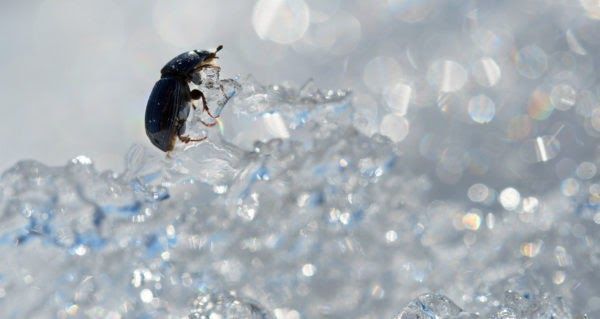As the temperature drops, pests often seek warmth and shelter indoors, making winter a prime time for indoor pest infestations. Managing indoor pest infestations becomes essential to prevent these unwanted guests from disrupting your home. From rodents, spiders to winter bugs, pests can cause structural damage and pose health risks if not addressed promptly. Learning to identify and manage these pests can save you time, money, and stress during the colder months.
Common Winter Pests to Watch For
Winter pests come in various forms, each with unique characteristics and risks. Here’s a closer look at the most common culprits:
Rodents
Mice and rats are notorious winter invaders. Seeking warmth, food, and shelter, they often enter homes through small cracks or gaps. Rodents can chew through wires, wood, and insulation, creating fire hazards and structural damage. Additionally, they spread diseases such as hantavirus and salmonella through their droppings. A single pair of rodents can multiply rapidly, turning a minor issue into a significant infestation.
Cockroaches
Cockroaches thrive in warm, hidden areas like kitchens and bathrooms. These pests can contaminate food and surfaces, spreading bacteria that lead to illnesses. Cockroaches are also known to trigger allergies and asthma, especially in children. They are resilient and can survive in extreme conditions, making them particularly challenging to eliminate without professional help.
Spiders
While most spiders are harmless, their presence can be unsettling. During winter, spiders often move indoors, building webs in corners, basements, and attics. Some species, such as the brown recluse, pose risks due to their venomous bites. Proper identification of spider species is critical to determining the level of threat they may pose.
Silverfish
Silverfish are small, wingless insects that prefer damp, dark areas like basements and bathrooms. While they don’t pose significant health risks, they can damage books, wallpaper, and clothing. Their ability to thrive in hidden areas makes them difficult to spot until noticeable damage has occurred.
Why Winter Increases Indoor Pest Activity
Winter creates the perfect conditions for pests to seek refuge indoors. Cold temperatures drive them to find shelter, while limited outdoor food sources encourage them to invade pantries and storage areas. The combination of warmth, food, and hiding spaces inside your home makes it an attractive environment for pests to thrive.
Pests are also less visible during winter, as they tend to hide in walls, attics, and other less-accessible areas. This hidden activity can lead to unnoticed damage and contamination until the infestation becomes severe.
Steps for Managing Indoor Pest Infestations
Effective pest management starts with prevention and early detection. Here’s how you can tackle indoor pest problems:
Seal Entry Points
Inspect your home for cracks, gaps, and holes in walls, windows, and doors. Use caulking or steel wool to block potential entry points and prevent pests from sneaking inside. Pay extra attention to areas around pipes, vents, and electrical wiring, as these are common entry points.
Maintain Cleanliness
A clean home is less inviting to pests. Regularly vacuum, mop, and wipe down surfaces. Store food in airtight containers, and don’t leave pet food or water bowls out overnight. Keeping trash bins tightly sealed also helps deter pests.
Reduce Moisture
Many pests, such as silverfish and cockroaches, thrive in damp environments. Fix leaky pipes, ensure proper ventilation, and use dehumidifiers to keep humidity levels low. Basements and bathrooms are common problem areas to require extra attention.
Monitor and Trap
Set traps or use bait to monitor pest activity. For rodents, snap traps or electronic traps can be effective. Glue traps work well for smaller pests like silverfish and cockroaches. Regularly check and dispose of traps to maintain a pest-free environment.
When to Call a Professional
While DIY methods can help manage minor infestations, severe or recurring problems often require professional intervention. Pest control experts can identify the extent of an infestation and use safe, effective methods to eliminate pests and prevent their return. If you are unsure about the type of pest or the severity of the infestation, consulting a professional is the best course of action.
Professional services also provide long-term solutions, such as integrated pest management (IPM), which focuses on addressing the root causes of infestations. This approach combines preventive measures, targeted treatments, and ongoing monitoring to ensure pests don’t return.
FAQs About Managing Indoor Pest Infestations
Can I prevent winter pests without professional help?
Yes, taking preventive measures like sealing entry points, maintaining cleanliness, and reducing moisture can significantly reduce the risk of infestations. However, professional services may be needed for severe problems.
Are winter pests dangerous to my family?
Some winter pests, like rodents and cockroaches, can spread diseases and contaminate food. Others, like spiders, may pose health risks if venomous.
How often should I inspect my home for pests?
Regular inspections, especially during seasonal changes, are recommended. Look for signs of pests like droppings, chewed wires, or webs.
How can I tell if I have a severe infestation?
Signs of a severe infestation include frequent sightings of pests, noticeable damage to your home, and recurring pest activity despite DIY measures.
Trust Hopper Termite & Pest for Your Winter Pest Control Needs
While managing indoor pest infestations becomes overwhelming, Hopper Termite & Pest is here to help. Our experienced professionals provide reliable solutions for termite control and various pest problems, including ants, bed bugs, flies, mosquitos, cockroaches, rodents, spiders, and wildlife. Protect your home from winter pests with our comprehensive services.
Contact our Springdale office at (479) 750-4070 or our Mountain Home office at (870) 425-4122 to schedule an inspection or learn more about how we can help. Don’t let winter pests take over – trust Hopper Termite & Pest to keep your home safe and comfortable.

